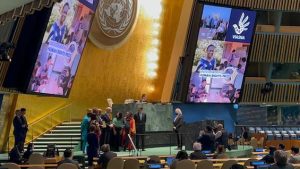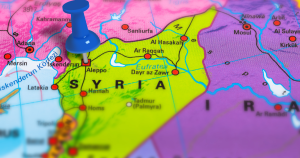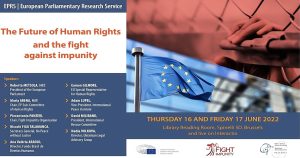On 26 April 2012, the Special Court for Sierra Leone (SCSL) found former Liberian President Charles Taylor guilty of having aided and abetted war crimes, crimes against humanity and other serious violations of international law for his role in supporting Sierra Leonean rebel groups during the armed conflict. President Taylor is the first former head of State to be judged by an international tribunal since the Nuremburg trials following the Second World War. NPWJ believes this was an historic event in the accountability process for the people of Sierra Leone and for international criminal justice world-wide. It means that no one is above the law, without exception. It sends a deterrent message to leaders considering committing serious crimes in violation of international law: even those at the highest level will be held to account for their actions.
The Taylor judgement mirrors the findings of the SCSL with regard to the activities of the RUF. Instrumental to the Special Court’s findings of prima facie humanitarian law violations in the case of the RUF were the UN Human Rights Reports and the No Peace Without Justice (NPWJ) Conflict Mapping Report, which were deemed “reliable and useful” for understanding “the background to or context of the conflict, as well as to make general findings.” The NPWJ Report was based on its conflict mapping program conducted in Sierra Leone in 2000-2004. It analysed records gathered from key persons throughout Sierra Leone and demonstrated very clearly that the campaign of terror and atrocities undertaken by the Revolutionary United Front was directed and supported by Charles Taylor before, during and after his Presidency. While President Taylor’s transfer to and trial in The Hague may have sent mixed signals and widened the gulf between the SCSL and the people of Sierra Leone, albeit minimised by the efforts of the SCSL’s outreach program, last month’s judgement is a critical step in Sierra Leone’s long road towards achieving accountability for the horrors of the armed conflict.
Following the release of the Charles Taylor judgement by the SCSL, No Peace Without Justice continues to reiterate its commitment to accountability for violations of international criminal, human rights and humanitarian law in Sierra Leone. This year has thus far seen a number of accomplishments in this regard.
At the end of February, NPWJ met in Freetown with key stakeholders, including the Registrar of the Special Court for Sierra Leone, to discuss issues related to the Legacy and Impact Survey of the SCSL. The Legacy and Impact Survey is being carried out by NPWJ in partnership with Manifesto99, the Coalition for Justice and Accountability, the Sierra Leone Institute for International Law and the Liberian NGO Network. Its purpose is to assess the impact and legacy of the SCSL as the principal accountability mechanism to try those who bear the greatest responsibility for the crimes committed during the conflict in Sierra Leone since November 1996. This will be done through questionnaires in Sierra Leone and Liberia to target groups such as legal professionals, political actors, members of the security sector, civil society and randomly selected members of the general public, among others. During this mission, NPWJ also participated in a workshop on implementing legislation for the International Criminal Court with representatives from various civil society groups, the Bar Association and the SCSL, all of whom underscored ICC implementing legislation as a key legacy of the SCSL. The workshop stressed the importance of Sierra Leone enacting implementing legislation as soon as possible, discussed possible impacts of doing so on the Sierra Leonean judicial system, and strategies for achieving implementation.
The mandate of the SCSL is near completion, and given that the judgement of former Liberian President Charles Taylor has now been issued, it is very important that the SCSL leave a real legacy for justice, reconciliation and the rule of law, for the government, the people of Sierra Leone, and for future international criminal justice initiatives in Africa.
NPWJ’s long standing and wide ranging program in Sierra Leone is designed to contribute to accountability for violations of international criminal law. The program has contributed to the establishment and functioning of the Special Court, as well as to strengthening Sierra Leonean society’s ability to address violations of human rights and humanitarian law. In recent years, NPWJ has also been working in Sierra Leone on ICC issues, including implementing legislation and holding seminars and round table discussions. NPWJ plans to continue with its involvement in Sierra Leone for the purpose of enabling the government and local stakeholders to participate in and influence the processes for re-establishing and maintaining the rule of law, peace and stability.
* Alison Smith is Legal Counsel and Coordinator of the International Criminal Justice Program of NPWJ




